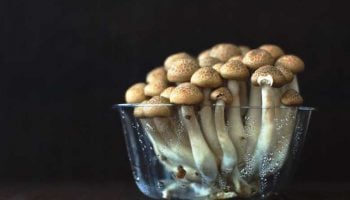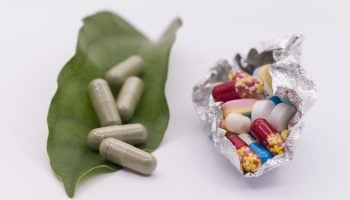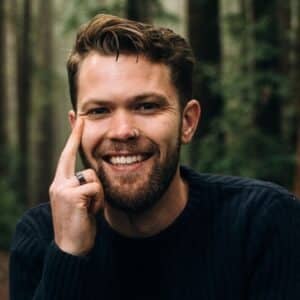“I lived in New York for 13 years. You have to have a certain healthy dose of skepticism and cynicism to live there. I’m saying right now, these medicines have the power to change you and change the world. And I don’t have a shred of irony or judgment on that statement.”
Cheryl is a sharp and ambitious 51-year-old business consultant from New York City. She can be intense, even bossy, at times. A “type A-minus” she calls herself––not exactly your typical image of a psychedelic explorer.
However, finding herself still stuck after years of therapy and meditation, she decided to interrupt her unhealthy patterns by embarking on a guided macrodose experience with psilocybin mushrooms. It was powerful and eye-opening—but she wasn’t sure how to integrate the experience to lock in sustainable change.
The visionary space of the macrodose was just too far removed from everyday life. She needed something more tactical and practical. Something that would help her manage the thousands of tiny choices in day-to-day living while running a fast-paced business. Like most people, she just wanted to live a happier, healthier life.
“How about a little less worry? A little less anxiety?” she asked. “How about a little more joy, a little more peace? Can I drink less? Can I eat less? How can I increase the good and decrease bad?”
Cheryl had already felt the transformational power of psychedelics. So when she saw an opportunity to join the Microdosing Experience, an immersive group program that helps people use microdosing to ground new insights and perspectives, she was all-in.
For her, it was a way to integrate psychedelic medicine into her life in a more sustainable, practical way.
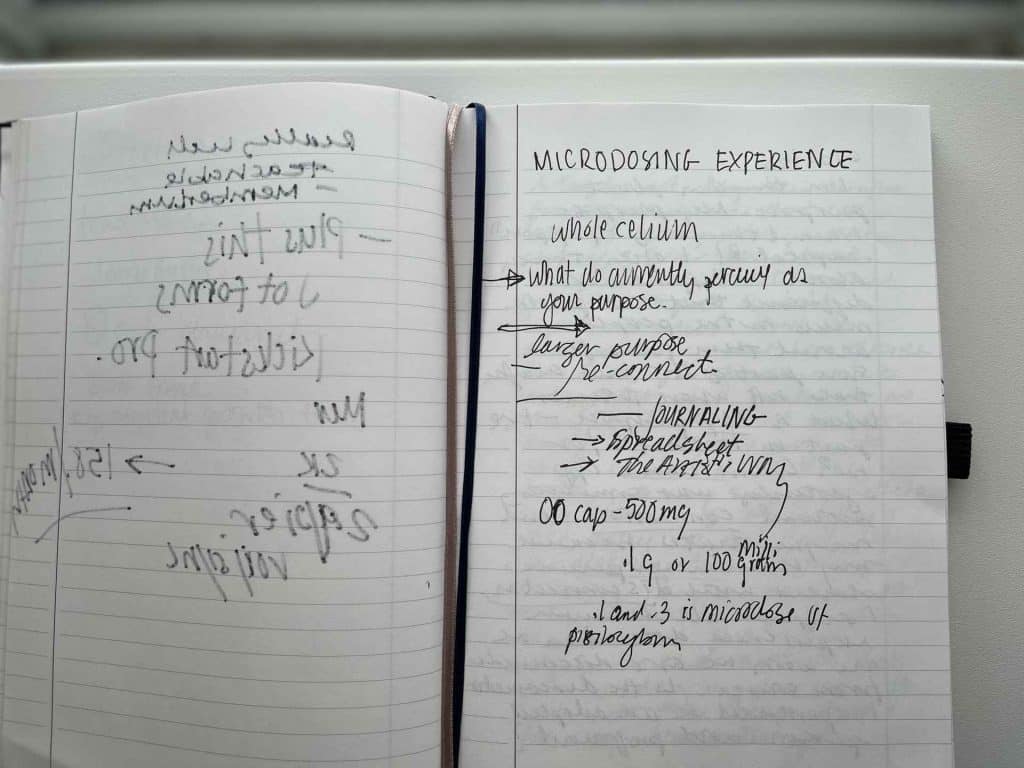
Diving Deeper: Uncovering Hidden Joy and Pain
“From the very first day I was like ‘Whoa, I’m back!’ I had so much energy and the world seemed great, all the colors were so vibrant,” Cheryl recalls. “I loved everything and even found myself joyously taking out the trash! And I hate taking out the trash.”
That’s when the real work started.
The initial rush of energy evolved into a heightened sense of self-perception. Her unhealthy coping mechanisms––especially around food and alcohol––were harder and harder to ignore.
“I’m really good at repressing my emotions and self-soothing with over-eating and drinking alcohol,” Cheryl admits. “Microdosing helped me realize what I was doing in the moment. It revealed what I needed to work on, brought awareness to my patterns, and helped me feel what I was trying to cover up.”
As the program progressed, she explored the challenging emotions she was avoiding through consumption. Worry. Anxiety. Anger. Feelings of failure and negative self-judgment––everything she wouldn’t allow herself to feel while playing the role of the high-performing professional who had it all together.
An awareness opened within her; she became more attuned to her inner landscape and its influence over her choices.
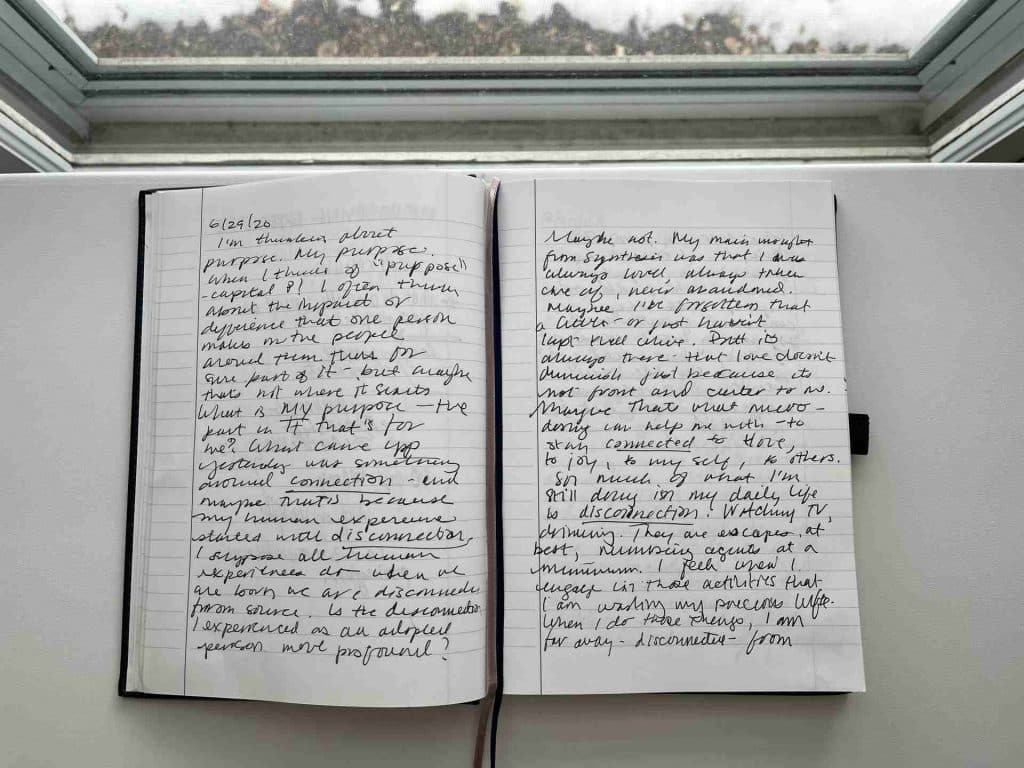
Cultivating The Freedom To Choose
Awareness, however, will only get you so far. Lasting transformation happens in the world of action and choice. And that’s where things began to really change for Cheryl.
“I used to respond to failure with lots of negative judgment. Now I have space to choose. How do I want to react? Will I eat what I said I wouldn’t eat? Will I drink when I said I wouldn’t drink? It’s not automatic anymore. I can choose,” she marvels.
It may seem small from the outside. Internally, however, it was a massive shift for Cheryl. Because for her, eating and drinking were never “just” the act of eating or drinking. There was a cycle of negative judgment and self-criticism built up around these unconscious choices for decades. A cycle that was finally broken.
This small internal shift slowly rippled out into other aspects of Cheryl’s life. Instead being powerless against her conditioned impulses, she had agency. She had a sense of inner freedom.
“Microdosing lifts you up and shows you a different possibility. It allows you to see potential and promise in the world, and in yourself, that you can’t regularly see. There are very few moments in your life where you get that kind of perspective,” she explains.
This is where microdosing is different from macrodosing. Instead of a single experience, it’s a practice. It’s a skill. Because it’s integrated within the context of daily life, it’s easier to cultivate new perspectives and patterns.

Resistance Is Futile
Since then, Cheryl’s hard edge has softened. She’s more tolerant and less judgmental––even with “stupid, annoying people”. She can even find simple pleasure in the mundane drudgery of life.
“I have so much less resistance to life,” she says. “I am able to engage with this human experience and get meaning and joy out of it. I have a very different experience of things I used to hate and get annoyed with.”
Her newfound openness, however, has had a curious side effect. As her self-judgment and negativity fell away, the way she saw other people also changed. Her view of the world changed.
“It’s so powerful to see a glimpse of how amazing we are, how amazing the world is, and how we can choose to create a better life for ourselves and the people around us. And microdosing gives you the oomph to do it.”
Cheryl is careful to point out that microdosing is not some sort of magic pill. Despite the incredible shifts she’s made in her life, they didn’t happen on their own. “There’s sweat equity you have to put into microdosing to create the kind of changes that you want.”
Structure and human connection through community were also important to her process. Even through Zoom, the human connection in the group was a major catalyst for her. “Exploring this space with 50 people at the same time was a powerful experience,” she stresses. “We all have questions. We all get confused. We’re all in it together. Sharing experience makes it easier to go through.”
The diversity of experience helped her to cultivate compassion for herself, giving her a new perspective on the stories she told herself about her struggles.
On the tactical level, the defined structure and practical tools in the program grounded the experience. They kept her focused instead of getting sidetracked by distractions or overpowered by difficult emotions.
“Psychedelics require wisdom, not just knowledge. In the Microdosing Experience, you get insights from people who have walked the path. That is very different than reading books or watching videos.”
A Word of Caution
Even though Cheryl’s experience was overwhelmingly positive, psychedelics aren’t recreational. They are powerful and require respect.
You don’t want to use psychedelics casually. You’re dealing with your life, with your soul, with your brain. It’s science and spirituality. So be careful and make sure that you’re approaching it thoughtfully and consciously.
If you’re interested in applying the potential of microdosing in your life with guidance and structure, just click the link to learn more about the Microdosing Experience.

